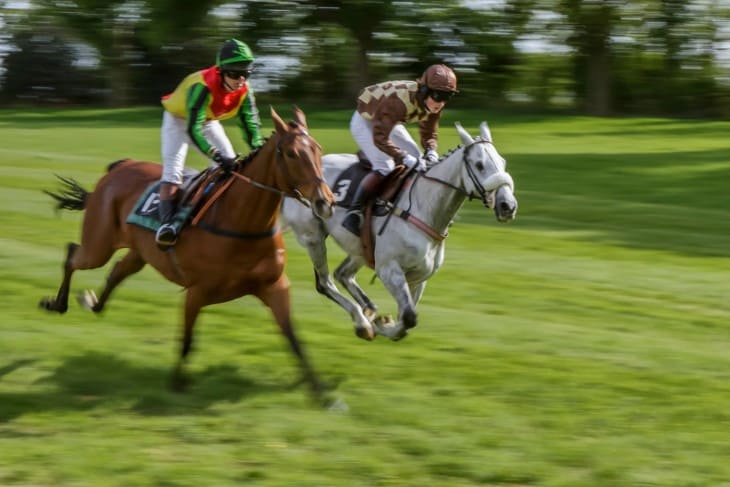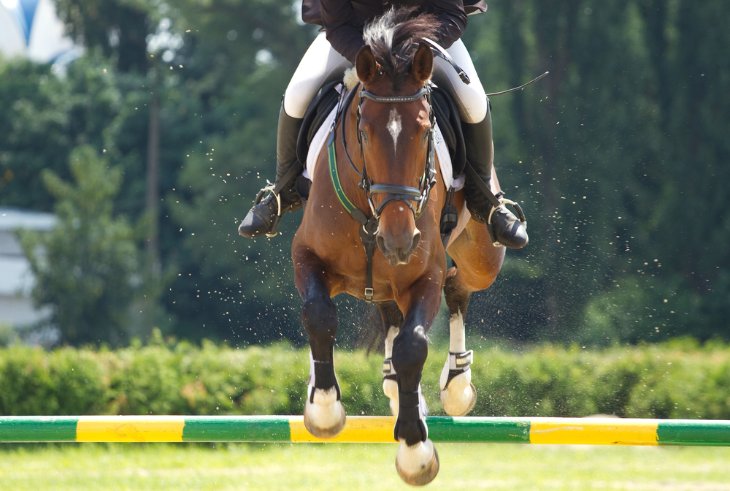- Initial Investment: Costs of Acquiring a Racehorse
- Training and Stabling Expenses
- Race Entry Fees and Competition Costs
- The Role of Jockeys and Training Staff
- Potential Income Streams: Prize Money and Sponsorship
- Breeding and Bloodlines: Implications for Value
- Taxation and Financial Considerations
- Conclusion: Weighing the Pros and Cons of Racehorse Ownership
Horse racing has long been a sport associated with prestige, excitement, and an air of luxury. The sight of thoroughbreds thundering down the track, the thrill of competition, and the potential for glory have drawn in enthusiasts and investors alike. But beneath the surface of this glamorous world lies a complex financial landscape that every aspiring racehorse owner should consider before taking the reins.
Welcome to a closer look at the world of racehorse ownership, where dreams of victory on the turf intersect with the practicalities of managing a significant investment. Beyond the glamour of race day, owners must navigate a labyrinth of costs, risks, and potential rewards. From the initial outlay to ongoing expenses, understanding the economics of owning a racehorse is essential to making informed decisions in this exhilarating industry.
Initial Investment: Costs of Acquiring a Racehorse
Before a racehorse even steps foot on the track, there's the crucial matter of acquiring the horse itself. While it's easy to envision the thrill of owning a champion, the initial investment required can be quite substantial. The price tag for a racehorse can vary immensely based on factors such as pedigree, age, and potential racing ability.
First and foremost, there's the purchase price of the horse. This can range from a few thousand pounds for a relatively unproven horse to several hundred thousand or even millions for a well-bred prospect with a strong racing lineage. It's not just about the potential speed on the track; pedigree, conformation, and lineage play a role in determining a horse's value.
But the costs don't stop there. Training a racehorse requires not only expert horsemanship but also a significant financial commitment. Stabling, feed, veterinary care, and training expenses all add up. Racehorses need regular exercise, specific diets, and meticulous medical attention to keep them in peak condition for competition. These ongoing costs can quickly become a significant part of the financial equation.

Training and Stabling Expenses
Once you've acquired a racehorse, the real work begins. Training and stabling are ongoing expenses that every racehorse owner must contend with. Your horse needs a dedicated and skilled team to guide its physical and mental development. Trainers, grooms, and exercise riders all contribute to a horse's preparation for races.
Stabling is more than just a place for the horse to rest; it's a home away from home. High-quality stables with proper ventilation, spacious stalls, and well-maintained facilities ensure that the horse remains healthy and comfortable. The costs of stabling vary based on location, facilities, and the level of care provided.
Training programmes are tailored to the individual horse, with workouts, gallops, and other exercises designed to build strength, stamina, and speed. But these personalised programmes come at a cost. Trainers' fees, exercise equipment, and the careful monitoring of the horse's progress all contribute to the expenses of preparing your horse for the track.
As you venture further into the world of racehorse ownership, keep in mind that the expenses don't stop once the horse starts racing. Race entry fees, jockey salaries, travel expenses, and other incidentals are all part and parcel of the financial landscape. While the journey may be financially demanding, the potential rewards can be significant for those who navigate this world thoughtfully.
Race Entry Fees and Competition Costs
As your racehorse strides onto the track, the thrill of competition blends with the reality of additional financial considerations. Each race comes with its own set of expenses, from entry fees to travel costs. Understanding these aspects is crucial for anyone venturing into the world of racehorse ownership.
Race entry fees are a standard part of the racing landscape. These fees cover the cost of entering your horse into a race, and they can vary significantly based on the level of competition, the prestige of the event, and the potential prize money. It's essential to carefully assess the entry fees of different races to ensure they align with your budget and expectations.
Beyond entry fees, there are other costs associated with participating in races. Travel expenses, including transportation for your horse and the accompanying team, accommodation, and incidentals, can accumulate quickly. Navigating logistics, ensuring the horse's comfort during travel, and providing suitable accommodations for both the horse and the team are all aspects that demand careful financial planning.
The Role of Jockeys and Training Staff
As your racehorse gallops towards victory, it's not just the horse's effort that matters – the expertise of the jockey is equally vital. Jockeys are skilled professionals who bring a combination of experience and strategy to each race. They understand the horse's temperament, strengths, and limitations, and they make real-time decisions that can influence the outcome.
Jockey fees are a significant cost to consider. Jockeys' salaries are typically a percentage of the prize money won, which means they are incentivised to perform well. While this structure aligns the interests of jockeys with the owners, it's still a financial consideration that adds to the overall cost of racing.
Training staff are the unsung heroes behind every successful racehorse. From trainers who plan workouts and conditioning to grooms who care for the horse's day-to-day needs, the expertise of the team is critical to the horse's performance. These professionals ensure that the horse is in peak physical and mental condition, ready to give its best on race day.
The salaries and fees of these individuals contribute to the ongoing expenses of racehorse ownership. While the financial aspects may seem daunting, it's important to recognise that investing in the right people is essential for maximising your horse's potential on the track.
Potential Income Streams: Prize Money and Sponsorship
In the world of racehorse ownership, the potential rewards can be as thrilling as the races themselves. While the costs involved are considerable, there are avenues for recouping and even profiting from your investment. One of the primary sources of income for racehorse owners is prize money earned through successful racing.
When your racehorse performs well and crosses the finish line ahead of its competitors, it not only brings glory but also a share of the prize money. Prize money varies greatly based on the level of the race, the purse size, and the competition. For high-profile races, the prize money can be substantial, offering the potential to recoup a significant portion of the expenses incurred in training, stabling, and other costs.
Another potential income stream is sponsorship. Successful racehorses, especially those with a promising track record, can attract sponsorships from various sources, including brands, businesses, and individuals. These sponsorships can provide a steady source of financial support, covering a portion of the ongoing expenses of ownership.
Sponsorship arrangements might involve displaying a company's logo on the horse's silks, promoting products or services, or simply associating the brand with a successful horse. While sponsorship doesn't replace the need for careful financial planning, it can offer a valuable boost to your racehorse's economic outlook.
Breeding and Bloodlines: Implications for Value
The value of a racehorse isn't solely determined by its performance on the track. Breeding and bloodlines play a crucial role in assessing a horse's potential worth. A horse with well-regarded parentage and a strong lineage can command higher prices, both as an investment and as a potential source of future earnings.
Breeding racehorses involves careful consideration of genetics and lineage to produce offspring with desirable traits. A successful racehorse can become a valuable stallion or broodmare, generating income through stud fees or the sale of offspring. This aspect of racehorse ownership adds a layer of complexity to the financial picture, as decisions about breeding can have long-term financial implications.
However, breeding isn't a guaranteed path to profits. The industry is competitive, and success in breeding requires careful selection, expert knowledge, and a bit of luck. It's important to approach breeding decisions with a clear understanding of the potential risks and rewards.

Taxation and Financial Considerations
As with any significant financial venture, racehorse ownership comes with its fair share of taxation and financial considerations. Navigating the tax landscape is essential to ensure that your ownership experience remains financially viable and compliant with regulations.
Prize money earned from racing is subject to taxation, and the exact tax implications can vary depending on your jurisdiction. Understanding how prize money is taxed, as well as any deductions or exemptions that might apply, is vital for accurately assessing the financial returns from your racehorse.
Additionally, expenses related to owning and maintaining a racehorse may have tax implications. Some jurisdictions offer deductions or allowances for specific costs, such as training expenses and veterinary care. These considerations can significantly impact the bottom line of racehorse ownership and should be factored into your financial planning.
While taxation can seem complex, seeking advice from financial experts with experience in the horse racing industry can help you navigate the intricacies and make informed decisions. A clear understanding of the tax implications will allow you to better assess the true economic feasibility of owning a racehorse.
Conclusion: Weighing the Pros and Cons of Racehorse Ownership
As we wrap up our journey through the economics of owning a racehorse, it's clear that this exhilarating world is a blend of dreams and pragmatism. The thrill of watching your horse compete, the potential for substantial prize money, and the prestige associated with racehorse ownership are all real and exciting aspects.
However, beneath the glamour lies a financial landscape that demands careful consideration. From the initial investment to ongoing expenses, from training and stabling to potential income streams, every aspect of owning a racehorse has financial implications. The rewards can be significant, but they must be balanced against the costs, risks, and complexities of this unique venture.
If you're considering entering the world of racehorse ownership, arming yourself with knowledge is key. Understanding the economics involved, seeking advice from industry professionals, and making well-informed decisions can lead to a more fulfilling and financially sustainable ownership experience.
So, whether you're captivated by the thrill of the track or drawn to the world of breeding and bloodlines, remember that owning a racehorse is a multifaceted journey that requires a blend of passion, strategy, and sound financial planning. As you tread this exciting path, may your racehorse journey be as rewarding financially as it is emotionally.







